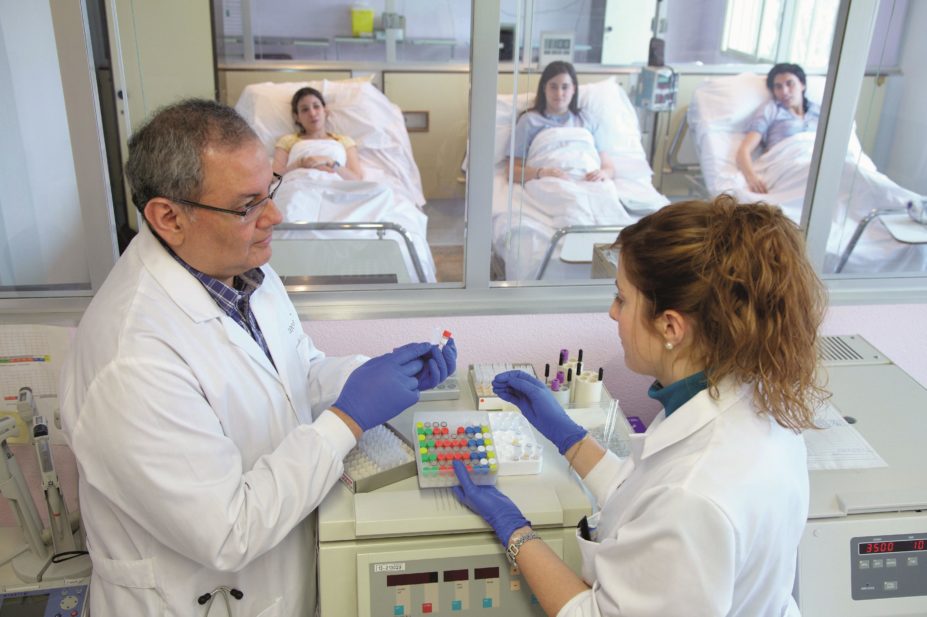
Age Fotostock Spain, S.L. / Alamy
Changes to clinical trial procedures for new cancer drugs will prevent duplication, reduce bureaucracy and speed up patient access to new products.
Under existing procedures, all sites involved in a clinical trial have to carry out their own technical pharmacy review. The review, which takes place during the set-up of the trial, includes looking at practicalities such as product safety data and how the drugs will be ordered.
But in future, all trials carried out by the Experimental Cancer Medicine Centres (ECMC) network — a joint initiative between Cancer Research UK and the four UK health departments — will require only a single review by a designated pharmacist who will then share the results with the other trial sites.
The change in the system has been coordinated by the Health Research Authority (HRA) — the organisation that streamlines the regulation of UK research — as part of its new clinical trials approval process.
Janet Messer, programme director for the HRA approval programme, said the new procedure was “an important step in the process of implementing HRA approval in a controlled and collaborative way”.
“We welcome this new initiative, which is the result of many months of hard work and consultation with NHS pharmacists working across the ECMC network and builds on local initiatives already under way,” said Tim Root, honorary secretary of the National Pharmacy Clinical Trials Advisory Group at the Royal Pharmaceutical Society.
“Pharmacists’ continued input will be vital to ensure that this new approach can work on a national scale and we look forward to supporting wider implementation.”
The initiative was also welcomed by Richard Baird, an oncologist involved in a trial looking at potential new treatments for people with lung cancer or breast cancer who go on to develop operable brain metastases. That trial currently involves three different centres but will be rolled out to twelve as it progresses.
“Every aspect of setting up a clinical trial is hugely time consuming and sometimes there is a lot of duplication,” he said. “This is one of those changes which seems obvious and you think why haven’t we been doing this for the last ten years?”
Peter Johnson, Cancer Research UK’s chief clinician, described it as an “important initiative to streamline the regulation of clinical research, so patients can continue to reap the benefits of the world-class research taking place throughout the UK”.


